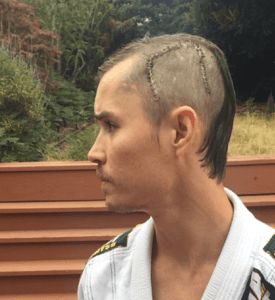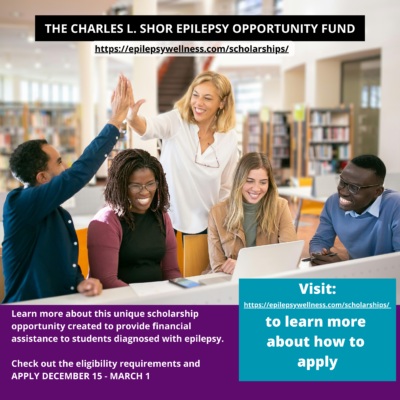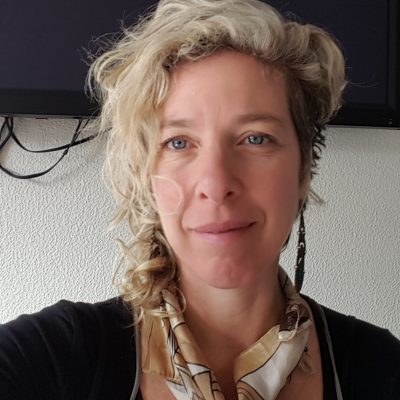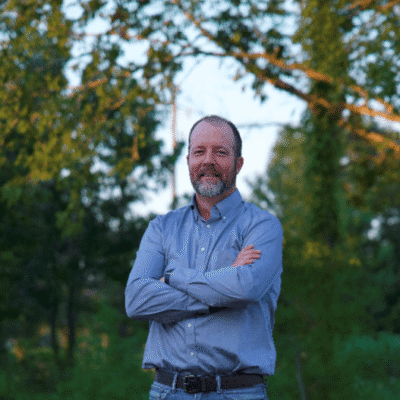 This post is part of the Epilepsy Blog Relay™ which will run from March 1 through March 31. Follow along!
This post is part of the Epilepsy Blog Relay™ which will run from March 1 through March 31. Follow along!
Teo’s Story
On March 15, 2012, I had brain surgery in Montreal. I was preparing for what would be my first neurosurgery and everyone was hoping that it would be the end of my epilepsy. (Since then I have had a second surgery at UCSF hospital in California.) Both times I remember being surprised at how I was feeling going into surgery. I was also surprised that everyone around me seemed to be more worried than I was. I felt like the star of some show; my surgery was all people were talking about. It was a strange feeling and didn’t seem real until the night before when I went to sleep in the rented apartment in Montreal then woke up early the next morning for surgery.
Calm before the storm
Epilepsy Surgery:
Somehow I knew everything would be ok but the level of anxiety in the atmosphere was hard to ignore. They were going to cut open my head and saw through my skull. That was the most disturbing part of the 10 hour long procedure. Sawing through the skull was like going to the dentist and having that drill vibrate throughout your head. It all sounds so loud, like when you’re on an airplane with headphones or swimming under water in noisy pool or feeling waves crash over you at the beach. This was my first experience with all this neurosurgery business and I’ll tell you about the 2nd surgery too but my experience with this and the lead up to the eventual flop was different from what you might expect.
I remember more of the people around me and feeling unusually calm. Even though everyone around me was anxious and I could feel their panicky unease and nervousness, I felt like I was watching a movie or walking through a museum with someone explaining the art to me. Afterwards my mom and brothers came into see me in recovery. It was very emotional. I couldn’t help but laugh at my huge bandaged head. Family support makes the worst situation bearable and even fun. Memories I have of fun things we did as a family during the 2 weeks before my first surgery are some of the best times spent as a family, like the way everyone gets along at Christmas and all the arguments and disagreements between siblings are temporarily forgotten or put on pause.
Related: Coping with Depression
Support is essential for brain surgery
Brain surgery is definitely a serious procedure and going through it twice really made me appreciate the support from my family, friends and girlfriends at each time. All the preparation the doctors tried to organize was nothing compared to the love shown by the people around me. With a fight like neurosurgery on the line, having family who love you in your corner is priceless.
Arguably one of the scariest experiences of my life and moments which seemed to freeze time was right after my second surgery in San Francisco in 2012. After my surgery, I was in recovery in a bed when the neurologist came in to check on me and see how I was doing. My operation was on the left side of my brain and had affected the right side of my body including my mouth which I’m still recovering from. My right side is less sensitive than my left and this applies to feeling heat, I first noticed this after my operation when washing my hands and not realizing how hot the water was until it started to steam!
The scariest moment
The scary moment I mentioned is when the neurologist came into my recovery room. He said hi and asked me a basic question like ‘how are you feeling?’ I wanted to tell him that I felt okay considering that they had just sewn my head back and I had 13 metal staples holding things together. I opened my mouth to speak but nothing came out. I had the words in my mind and I had understood the question but I couldn’t speak. My body felt suddenly covered in goosebumps and my world felt flipped upside down! The first thought I had was “please let this be temporary!” I felt terrified that I wouldn’t be able to speak again. I turned to my mom who was in the room with me. My face must’ve shown what I was thinking and feeling because she was immediately at my side asking me what was wrong and if I could speak. I shook my head trying to get the words out. They were on the tip of my tongue but I couldn’t get them out. I almost wished to have my seizures back if I could speak again. It was like the software was working but the hardware and muscles weren’t responding.
Speech therapy, positive motivation and the will to get back to who I was helped me climb back up. This made me think about how difficult and stressful it must be to develop epileptic seizures later in life because of an accident or some other cause. I was diagnosed with epilepsy at 3 years old so seizures while I sleep is the life I know and what I’m used to.
Flexibility and adaptability are essential
My ex-girlfriend recently contacted me and told me that she started to have seizures in her sleep at age 39. Some of her doctors say she has epilepsy. She’s confused and upset. Stressed and afraid. It started as repetitive migraines then the nocturnal seizures started.
This reminded me of the importance of flexibility and the ability to adapt to every situation. No matter how bad things seem it could always be worse. Look at the bright side of every situation. I had a taste of what a life-changing experience epilepsy can for some people. When life turns an unexpected way you always have more than one option. Adapt and learn to move with life’s natural flow
NEXT UP: Be sure to check out the next post by Jade at livingwellwithepilepsy.com for more on epilepsy awareness. You can check out any of the Epilepsy Blog Relay posts you may have missed.
Share your story








Leave a Reply